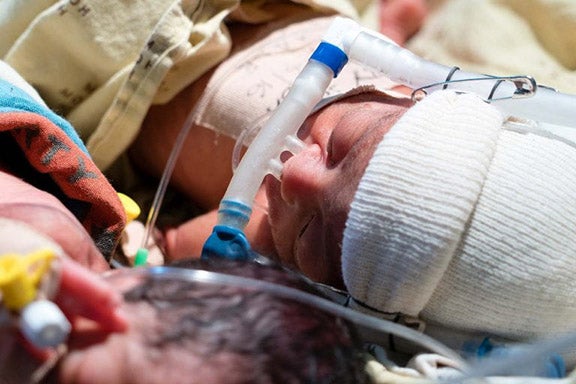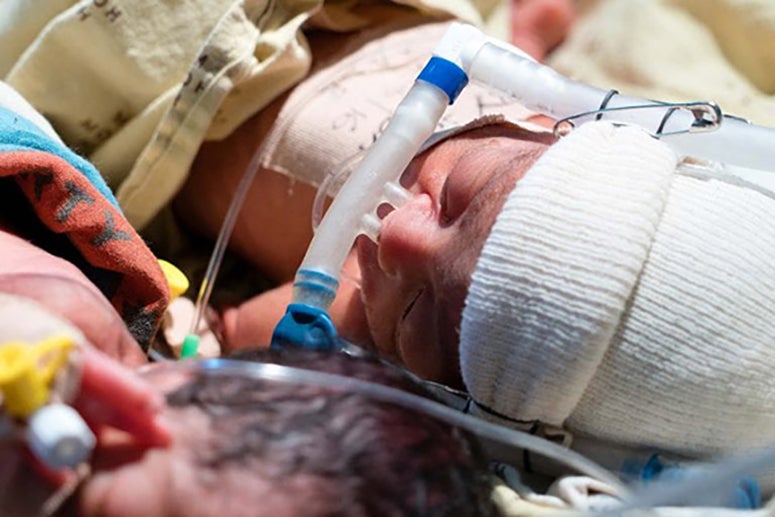Rebecca Richards-Kortum doesn’t ask for permission to solve the world’s problems, she just goes to work. Guided by the belief that everyone deserves the benefits of health innovation, her research and teaching focus on developing and disseminating low-cost, high-performance global health technologies. Working alongside student and clinical collaborators, she provides vulnerable populations in the developing world access to lifesaving health technology. Transforming ideas into sustainable solutions, Richards-Kortum, Rice’s Malcolm Gillis University Professor of Rice 360° Institute for Global Health Technology, has spent her career developing point of care medical technologies to address global health disparities in low-resource settings as well as training and inspiring students to address global challenges.
Richards-Kortum discovered her passion for solving persistent and widespread problems as an undergraduate in a semiconductor physics lab. “While I was grateful for that research opportunity, I learned that I’m a person that is more motivated by trying to solve problems that are more immediate,” she said. “I discovered that it’s important to me that my research have a more tangible impact to improve someone’s life in the shorter time frame – five to 15 years.” As a graduate student, Richards-Kortum sought out research opportunities with fast impact potential.

Her research has led to the development of 40 patents, targeting diseases and conditions that cause high morbidity and mortality, such as cervical and oral cancer, premature births and malaria. Through Rice 360°, Richards-Kortum and her students have created a low-cost phototherapy device to treat neonatal jaundice and a bubble continuous positive airway pressure machine (bCPAP) to support premature infants who are unable to breathe on their own. She’s leading a multi-institutional team aiming to halve newborn deaths in sub-Saharan Africa in 10 years by developing a package of 17 lifesaving neonatal technologies that are accessible, rugged and affordable.
In 2018, she served as a U.S. science envoy for health security, one of only 23 scientists selected for the prestigious position. Fortune magazine named her one of the World’s 50 Greatest Leaders in 2017, and she was awarded a MacArthur Fellowship in 2016, making her the first Houston scientist, first Houston woman and first Rice faculty member to win the award.
NEST360°
Richards-Kortum’s latest project is serving as a co-founder of an international initiative that aims to prevent the majority of nearly 1 million newborns who die each year in sub-Saharan Africa. NEST360°, a mostly women-led team, is committed to reducing neonatal mortality by optimizing effective and affordable devices, training clinicians and biomedical engineers, developing locally-owned data to drive quality of care, and shaping a marketplace that connects device manufacturers with health systems. Some of the world’s largest charitable foundations have committed $68 million for the first of two four-year phases.
“Today, most women in Africa deliver their babies in health facilities, but clinicians working in those facilities do not have the technology they need to care for small and sick babies,” said Richards-Kortum. “The team is working together to identify high-quality, affordable technologies to fill this gap. Engineers in the U.S. and Africa will work together to develop new technologies to save newborn lives. And we will partner with educational institutions and the private sector to scale up what works best.”

Almost half of childhood deaths occur in the first four weeks of life, and newborns in sub-Saharan Africa are nearly nine times more likely to die within their first month than babies born in communities with state-of-the-art neonatal intensive care. NEST360°’s first phase will focus on Malawi, Tanzania, Kenya and Nigeria. Phase two will target Ethiopia, Ghana, Ivory Coast and Uganda, with the goal of catalyzing continent-wide adoption.
NEST360° is led by engineers, physicians, nurses, global health experts and entrepreneurs from sub-Saharan Africa, the United States and the United Kingdom. The program’s roots are in Malawi, with an innovative engineering education program that Richards-Kortum and Rice bioengineer Maria Oden launched in 2006 to design affordable, durable medical devices for African hospitals, among them an award-winning CPAP for premature babies who struggle to breathe.
To clinically study and implement these technologies, Oden and Richards-Kortum forged partnerships with doctors, nurses, governmental health officials, educators, community leaders and others. What began as a program to teach Rice engineering students to solve real-world health problems grew into an international consortium founded on the principle that all parts of the solution — technological, political, educational, economic and sociological — are necessary and must be implemented together to sustainably prevent newborn deaths in Africa.
NEST360° will enable African hospitals to both provide and sustain quality, comprehensive newborn care by ensuring that systems for financing, distribution, training and infrastructure are implemented alongside technology. NEST360° also will establish a pipeline of local innovators, technicians and medical staff.


